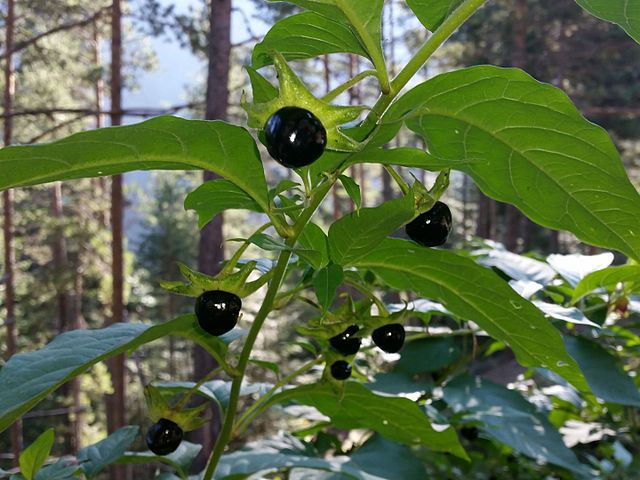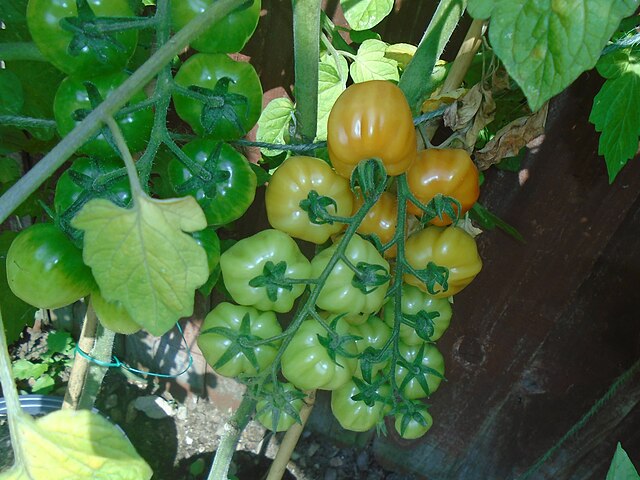Atropa is a genus of flowering plants in the nightshade family, Solanaceae: tall, calcicole, herbaceous perennials, bearing large leaves and glossy berries particularly dangerous to children, due to their combination of an attractive, cherry-like appearance with a high toxicity. Atropa species favour temperate climates and alkaline soils, often growing in light shade in woodland environments associated with limestone hills and mountains. Their seeds can remain viable in the soil for long periods, germinating when the soil of sites in which plants once grew is disturbed by human activity or by natural causes, e.g. the windthrow of trees. The best-known member of the genus Atropa is deadly nightshade - the poisonous plant par excellence in the minds of many. The pharmacologically active ingredients of Atropa species include atropine, scopolamine, and hyoscyamine, all tropane alkaloids having anticholinergic, deliriant, antispasmodic and mydriatic properties. The genus is named for Άτροπος (Atropos) - lit. 'she who may not be turned (aside)' - one of the Three Fates and cutter of the thread of life / bringer of death - in reference to the extreme toxicity of A.belladonna and its fellow species - of which four others are currently accepted.

Atropa
Solanum is a large and diverse genus of flowering plants, which include three food crops of high economic importance: the potato, the tomato and the eggplant. It is the largest genus in the nightshade family Solanaceae, comprising around 1,500 species. It also contains the so-called horse nettles, as well as numerous plants cultivated for their ornamental flowers and fruit.
Solanum
Unripe fruit of Solanum lycopersicum (tomato)
Five-minute plant (S. atropurpureum) fruit
Solanum palinacanthum





